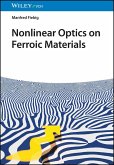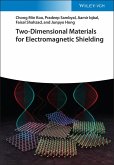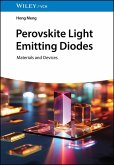Two-Dimensional Materials for Nonlinear Optics
Comprehensive resource covering concepts, perspectives, and skills required to understand the preparation, nonlinear optics, and applications of two-dimensional (2D) materials
Bringing together many interdisciplinary experts in the field of 2D materials with their applications in nonlinear optics, Two-Dimensional Materials for Nonlinear Optics covers preparation methods for various novel 2D materials, such as transition metal dichalcogenides (TMDs) and single elemental 2D materials, excited-state dynamics of 2D materials behind their outstanding performance in photonic devices, instrumentation for exploring the photoinduced excited-state dynamics of the 2D materials spanning a wide time scale from ultrafast to slow, and future trends of 2D materials on a series of issues like fabrications, dynamic investigations, and photonic/optoelectronic applications. Powerful nonlinear optical characterization techniques, such as Z-scan measurement, femtosecond transient absorption spectroscopy, and microscopy, are also introduced.
Edited by two highly qualified academics with extensive experience in the field, Two-Dimensional Materials for Nonlinear Optics covers sample topics such as:
With collective insight from researchers in many different interdisciplinary fields, Two-Dimensional Materials for Nonlinear Optics is an essential resource for materials scientists, solid state chemists and physicists, photochemists, and professionals in the semiconductor industry who are interested in understanding the state of the art in the field.
Comprehensive resource covering concepts, perspectives, and skills required to understand the preparation, nonlinear optics, and applications of two-dimensional (2D) materials
Bringing together many interdisciplinary experts in the field of 2D materials with their applications in nonlinear optics, Two-Dimensional Materials for Nonlinear Optics covers preparation methods for various novel 2D materials, such as transition metal dichalcogenides (TMDs) and single elemental 2D materials, excited-state dynamics of 2D materials behind their outstanding performance in photonic devices, instrumentation for exploring the photoinduced excited-state dynamics of the 2D materials spanning a wide time scale from ultrafast to slow, and future trends of 2D materials on a series of issues like fabrications, dynamic investigations, and photonic/optoelectronic applications. Powerful nonlinear optical characterization techniques, such as Z-scan measurement, femtosecond transient absorption spectroscopy, and microscopy, are also introduced.
Edited by two highly qualified academics with extensive experience in the field, Two-Dimensional Materials for Nonlinear Optics covers sample topics such as:
- Foundational knowledge on nonlinear optical properties, and fundamentals and preparation methods of 2D materials with nonlinear optical properties
- Modulation and enhancement of optical nonlinearity in 2D materials, and nonlinear optical characterization techniques for 2D materials and their applications in a specific field
- Novel nonlinear optical imaging systems, ultrafast time-resolved spectroscopy for investigating carrier dynamics in emerging 2D materials, and transient terahertz spectroscopy
- 2D materials for optical limiting, saturable absorber, second and third harmonic generation, nanolasers, and space use
With collective insight from researchers in many different interdisciplinary fields, Two-Dimensional Materials for Nonlinear Optics is an essential resource for materials scientists, solid state chemists and physicists, photochemists, and professionals in the semiconductor industry who are interested in understanding the state of the art in the field.
Dieser Download kann aus rechtlichen Gründen nur mit Rechnungsadresse in D ausgeliefert werden.









